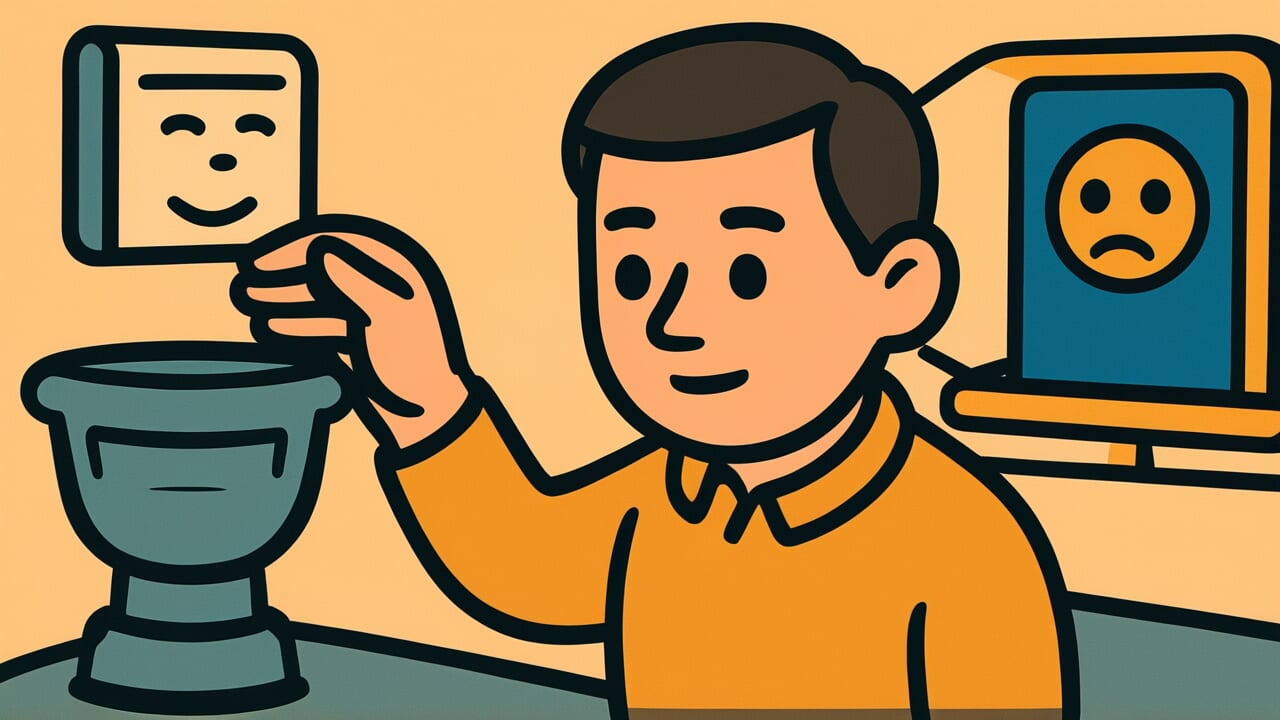How to Read “Compassion cannot be held as collateral”
Nasake wa shichi ni okaреzu
Meaning of “Compassion cannot be held as collateral”
This proverb means that compassion and kindness from others cannot be pawned at a pawnshop like money or objects. Therefore, these feelings are extremely precious.
The kindness of someone who helped you in difficult times has no physical form. But that’s exactly why it has irreplaceable value.
People use this proverb when they want to emphasize the importance of human compassion. It teaches that material wealth isn’t everything.
Warm connections between people matter most in life. Modern society tends to put a price tag on everything.
However, this proverb reminds us that human hearts and compassion can never be converted into monetary value. They remain special and priceless.
The saying also carries a warning. Never forget the kindness and favors you’ve received. Treasure them always.
Origin and Etymology
The exact origin of this proverb isn’t clear in historical texts. However, people likely used it during the Edo period.
“Shichi ni oku” means pawning items as collateral when borrowing money. Pawnshops were deeply rooted in common people’s lives during the Edo period.
People regularly pawned kimono and household items to get through emergencies. This was an everyday sight in those times.
The proverb emerged from people’s real-life experiences. When someone helps you in trouble, that kindness cannot be pawned like physical goods.
Our ancestors understood a paradoxical truth. Things that cannot be pawned actually hold the greatest value.
The proverb cleverly uses the concrete example of pawnshops. This makes the abstract concept of “human compassion’s value” easy to understand.
The teaching that things beyond monetary value matter most resonated strongly with people. This happened especially during the Edo period when the money economy was developing.
Through the familiar pawnshop, this saying explains the value of invisible human hearts. It represents the concentrated wisdom of common people.
Usage Examples
- I’ll never forget how you helped me back then. Compassion cannot be held as collateral, after all.
- Her kindness truly saved me. Compassion cannot be held as collateral—it has value that money can’t buy.
Universal Wisdom
Since ancient times, humans have measured the value of visible and invisible things. Food, tools, and shelter are essential for survival.
However, our ancestors learned from experience that these alone aren’t enough. People cannot truly live on material things only.
Material help certainly matters when you face difficulties. But what stays in your heart is something deeper.
The compassion that person showed you matters more than the help itself. The fact that someone lent you money is one thing.
But the feeling of someone rushing to your side with concern remains a warm memory for years. This warmth lasts far longer than the money.
This proverb has been passed down for generations because it captures a truth we instinctively understand. We are social creatures.
We can only feel true happiness through connections with others. No matter how materially rich you are, life feels empty without compassion from anyone.
On the other hand, even in poverty, people can live strongly when they support each other. Mutual support gives strength.
This saying places the highest value on invisible human compassion. It contains deep insight into the essence of human existence.
This truth never fades, no matter how times change. It remains universal across all eras.
When AI Hears This
Looking at the act of giving compassion as energy flow reveals interesting discoveries. The second law of thermodynamics states something important.
When heat moves from hot objects to cold ones, “usable energy” always decreases in the process. Hot coffee always cools down.
Cold coffee never naturally becomes hot again. This one-way direction is a basic rule of the universe.
The same thing happens in human relationships. When you show kindness to someone, that goodwill energy dissipates as it reaches them.
Even if you put in 100 units of goodwill, the other person might receive only 70. As time passes, it decreases to 50, then 30.
Physical collateral preserves value. If you deposit 10,000 yen, you retain rights to 10,000 yen. But compassion has no physical form.
It fades in memory. Feelings of gratitude also erode over time.
Even more interesting is that chains of goodwill are inefficient, just like heat transfer. When A shows compassion to B, and B passes it to C, energy decreases each time.
Physics uses the concept of “exergy” to measure actually usable effective energy. Human goodwill works the same way.
It’s an irreversible system where effectiveness is lost with each transmission.
Lessons for Today
In modern society, everything seems to have a price tag. Everything becomes an object of transaction.
Time, skills, and even human relationships are often measured by efficiency and profit. However, this proverb reminds us of something important.
Truly valuable things cannot be exchanged or bought and sold. They exist beyond commerce.
When you show kindness to someone, you don’t need to expect anything in return. The act itself already creates value in the world.
At the same time, never take lightly the compassion you receive from others. It leaves no physical trace.
But it becomes an important treasure that supports your life. This invisible wealth matters deeply.
In our daily busyness, we tend to chase only visible results. But stop and think for a moment.
What truly enriches your life? Is it the numbers in your bank account? Or is it warm connections with people you trust?
This proverb teaches us the priorities we should value as human beings. Don’t hold back compassion.
Never forget the kindness you’ve received. Treasure heart-to-heart connections above all else.
This way of living is the path to true richness. Material wealth alone cannot fulfill us.



Comments